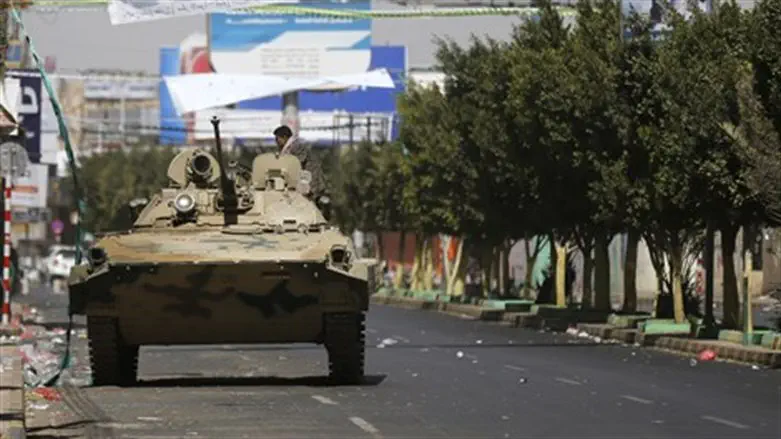
Moammar al-Eryani, the Information Minister of the internationally recognized Yemeni government, is applauding the Trump administration’s direct approach to the Houthi insurgency, crediting US military actions with restoring strategic balance in the region.
Speaking to The Media Line, al-Eryani praised what he described as a long-overdue intervention against a mounting regional threat.
Describing the Houthis as “an advanced military arm of Iran in the southern Arabian Peninsula,” al-Eryani stressed the danger they pose to regional security and global trade routes.
“Ignoring this threat is like allowing a cancer to spread to its final stages,” he told The Media Line.
The minister linked the US strikes to a broader effort to stop Iranian expansionism and secure vital waterways like the Red Sea and Bab-el-Mandeb. He noted that the Houthis have turned ports into platforms for missile launches and are now capable of targeting oil tankers and commercial ships using sophisticated technology.
“It has launched systematic attacks on commercial vessels and oil tankers in the Red Sea, threatening one of the world’s most important maritime passages,” he said.
Al-Eryani drew a clear contrast between Trump’s approach and what he called prior international inaction. The result, he claimed, was Iran’s unchecked influence across four Arab capitals. But with the US stepping up, he sees a shift: “The new administration has instituted a strong and clear policy to deter this expansion.”
According to al-Eryani, the strikes reflect more than a military calculation—they mark a philosophical shift in Washington’s foreign policy. “Make America Great Again is not just an election slogan; it was embodied in practical positions that restore America’s role as a leader in the free world.”
The minister dismissed Houthi claims of missile strikes against Israel as empty propaganda. “They have not changed the course of events and do not represent a real military threat to Israel,” he told The Media Line, calling the announcements part of a media strategy aimed at deflecting attention from their actions inside Yemen.
In addition to airstrikes, the US has ramped up financial pressure, sanctioning banks controlled by the Houthis. Al-Eryani welcomed the move, saying it disrupts the militia’s ability to fund operations. “The US action is a clear message that the world will no longer turn a blind eye to a reality in which a designated terrorist militia dominates financial and banking institutions.”
Ultimately, al-Eryani believes time is running out for the Houthis. With international awareness rising and regional dynamics shifting, he told The Media Line that he is confident the tide is turning. “The Yemeni people will not remain hostage to this militia indefinitely... the chapters of change have already begun.”
In March, the US initiated an air operation against the Iran-backed Houthis. The aim is to disrupt their capacity to target international shipping and military vessels operating in strategic waterways.
US President Donald Trump recently stated that the Houthis would be “completely annihilated" and added that Iranian support would only impede but not stop the Houthis' destruction.
Trump later said that the Houthis now want peace because the US attacks on them have been very successful, while stressing that those strikes will continue for a very long time.
The Houthi rebels have upped their attacks in the region since October of 2023, having launched drones and ballistic missiles towards cities in Israel while also targeting commercial ships in the Red Sea region, in support for Gazans.
The Houthis halted their launches towards Israel with the start of the ceasefire and hostage release deal between Israel and Hamas, but began to fire missiles towards Israel again after the ceasefire concluded.
